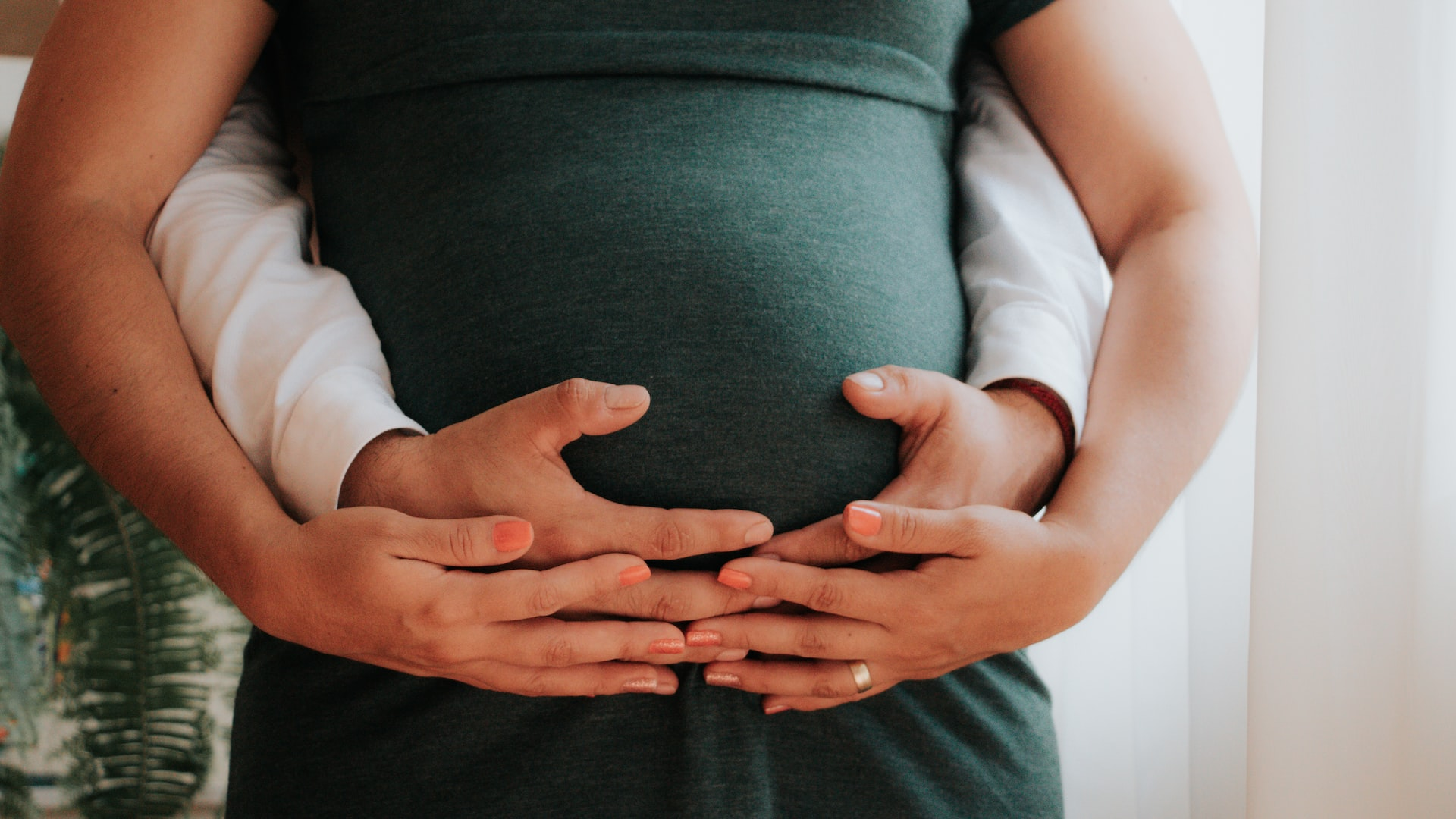Just as physical health is important for both the mother and the developing baby, so too is mental health. Unfortunately, due to the stigma surrounding women’s mental health concerns, many pregnant women feel ashamed or embarrassed to seek help when they are struggling. This needs to change.
It’s important to take care of your mental health during pregnancy
Pregnancy is a time of great physical and emotional changes. Change can sometimes bring about stress, which is a natural response to disruption and challenges. Even positive changes can be stressful.
So it’s vitally important that you pay attention to how pregnancy-related changes might be affecting your levels of stress, and it’s important that you take actions to ensure you are looking after your mental health during pregnancy.
Pregnancy emotions
It’s normal for certain hormonal changes to take place during pregnancy. This includes one of the main hormones our bodies produce when faced with stress – cortisol. Cortisol levels usually increase during pregnancy, reaching their peak in the final few weeks of the third trimester.
These hormonal changes are important for the development of the baby – they assist with healthy brain development and lung maturation. But high cortisol levels can also challenge our emotions. Outside of pregnancy, high cortisol levels have been linked to some forms of anxiety and depression (Sonino & Fava, 2001; Carroll et al., 2001), and it is possible that high cortisol might also influence mood swings during pregnancy.
Read more about emotions during pregnancy.
Understanding how the hormonal and physical changes of pregnancy influence our emotions might be the first step to counter-acting the negative effects of what is in reality a normal biological process.
Recognising signs of stress, anxiety and depression is also an important step to addressing unhealthy levels of distress during pregnancy.

Symptoms of antenatal depression & anxiety
Common symptoms of depression or anxiety during pregnancy include agitation, insomnia or a change in sleeping patterns, morning sickness, changes in appetite and mood swings. Some people with depression report a decreased ability to feel pleasure, or feel sensitive to the criticism or feedback of others.
To some extent the symptoms of depression and anxiety are part of the typical human experience. We all feel sad and stressed at times. Experiencing some distress can be thought of as a normal part of our response to stressors – the things that happen in our lives that aren’t expected or wanted.
Even the typical changes and new experiences that arise during pregnancy can be stressful enough to trigger feelings of distress. Feeling some apprehension or unease about stressors can actually play an adaptive role in that it can alert us to potential threats, and provoke us to take action to avoid harm to ourselves or our loved ones.
But if those feelings of stress or unhappiness are extreme or persistent, we can suffer. High levels of anxiety are counterproductive; they can block our progress towards finding good solutions to our problems. Extended or extreme sadness can be problematic; it can impact our sense of self-worth, our health and the health of the baby.
We think of depression and anxiety as being problematic when they are significantly impacting our day-to-day functioning. If your ability to look after ourselves or our family is affected or if our relationships with others are impacted it may be time to take action to address the anxiety or depression you are feeling.
If the symptoms of anxiety or depression get too much you should seek professional guidance – speak to your GP or pregnancy care providers – they won’t judge you, and they will be able to direct you to the right supports to meet your needs.
Mental health’s impact on a growing baby
Your own mental health can influence your unborn baby’s health during pregnancy and also their health after birth. For example, extreme stress during pregnancy can increase the risk of premature childbirth and may even increase your child’s risk of future health problems like asthma and allergies.
Pre-existing mental health issues that can influence pregnancy mental health
For some, pre-existing mental health conditions and medical conditions may need to be considered in pregnancy care. It’s important that you consider how your mental health might need to be managed prior to getting pregnant, or in the earliest stages of pregnancy.
Speak to your doctor about untreated mental illness, or about whether the treatment you are getting for your mental health condition requires adjustment while you are pregnant.
Some antipsychotic medications / antidepressant treatments may not be suitable to take while you are carrying a baby and carry a risk of birth defects. Psychiatric or psychological conditions that might need professional consultation before or during pregnancy include:
- bipolar disorder
- post-traumatic stress disorder (PTSD)
- history of panic attacks
- obsessive-compulsive disorder (OCD)
- eating disorders (e.g. bulimia)

Managing your mental wellbeing
When we practise self-care, our mental wellbeing improves. For example, self-care has been shown to influence our levels of fatigue – a vitally important consideration when you’re pregnant. And by looking after yourself, you’ll be looking after your baby.
In addition to self-care, it’s important that we make room in our lives for some self-compassion. Research tells us that self-compassion plays a role in our mental health and wellbeing (Bohadana et al., 2019; Neff, 2003).
Having high levels of self-compassion has been associated with lower levels of depression and parenting stress (Neff & Faso, 2015) and with lower levels of distress when faced with stigma and criticism from others (Wong et al., 2016).
Also, for expectant parents, there is a link between high levels of self-compassion and a reduced likelihood to be critical of ones own children, as well as a reduced likelihood of distress when dealing with children’s negative reactions (Psychogiou et al., 2016).
Self-compassion is the practice of being kind to ourselves in the face of personal failures or mistakes we’ve made. It could mean allowing ourselves to forgive some minor indiscretions in not adhering to a particular diet during pregnancy or for missing an appointment because you just simply forgot all about it.
Sometimes it might mean you work towards not allowing feelings of guilt for making a poor choice to get in the way of making positive changes that will benefit your baby. Forgiving mistakes made, and moving on. Accepting our past and deciding to commit to better choices in the future.
Also, self-compassion can help to buffer the negative influence of criticism from other people, leading to improved mental health.
However, research tells us that many expectant parents have no regular self-care strategies, and as humans we sometimes find it difficult to allow ourselves some self-compassion. Recent Australian research tells us that up to a quarter of parents do not regularly practice self-care.
This same research also told us that parents who did engage in self-care were more confident about their parenting and parents who were self-critical felt less confident as parents. So, looking after yourself in pregnancy and beyond is vitally important for the way you’ll feel about yourself as a future parent.
But what is self-care? And what can you do to increase your self-care during pregnancy?
Learning ways to cope with stress
There are lots of helpful tools and tips out there to help you create a mindset that is most helpful in managing stress.
Mindfulness is one group of strategies that has shown a lot of success. Mindfulness helps you ‘tune into’ your thoughts and understand how those thoughts produce physical or emotional reactions in ourselves.
In learning some mindfulness techniques you will be encouraged to ‘acknowledge’ those negative physical and emotional responses to stress, but to avoid letting them take over, gradually replacing them with more helpful thoughts and reactions.
Other ways to manage stress include getting regular exercise, improving your diet, getting some regular fresh air or having contact with the positive people in your life. It’s really up to you – what works for one mum may not work for another. Try a few things out and see what works best for you – yoga or yoghurt, meditation or mindfulness – it might take a bit of trial and error before you find the solutions that work for you.

Make time for you
Allow yourself time in your busy day to do something that helps you relax and re-energise. This could be as simple as going for a walk around the block, going for a swim, or catching up with a friend for a chat. Pursuing a favorite hobby can be a good way to refresh and to clear your mind.
It’s important that this time you create for yourself is filled with positives, so make sure you’re doing something that you’re good at and that you enjoy. This is not the time for self-criticism to creep into your thoughts – you want to keep your mind focused on the positive aspects of you, for your sake and for the baby’s sake.
Prioritise sleep & rest
Ensuring you get enough sleep at night, and naps during the day if you need to, is vital for you and for baby. Getting adequate sleep at night will help you face the physical demands of the day ahead and will provide your mind with the rest it needs to focus on the day ahead.
Research shows a strong relationship between fatigue and health – both physical health and mental health. And parents who have greater levels of fatigue are more likely to be self-critical and less likely to give themselves time to do enjoyable things for themselves (read more).
Eat healthy
As always, during pregnancy a healthy, balanced diet is vital. Not only is good nutrition important to ensure the healthy development of the fetus, healthy eating is a cornerstone of good mental health.
Especially during pregnancy, it’s important that you are getting the right mix of nutrients (like iron and folic acid) to ensure your body is able to cope with the physical demands of pregnancy and to ensure you are setting yourself and baby up for a healthy future.
Women with particular health issues like diabetes or high blood pressure, who are overweight or have other health conditions should pay particular attention to their diet during pregnancy. You may benefit from guidance from your GP or a specialist nutritionist to help monitor or adjust your diet prior to and during pregnancy.
Join a ‘parents-to-be’ group
As humans we tend to be social beings; we seek the company of others who share our experiences and our interests. This can be a good thing for our mental health, especially if the people we are connecting with are giving us positive, helpful messages.
So, think about whether joining a group of people going through the pregnancy journey would be helpful to you and your partner.
Connect with family & community
It may be that the people you get most benefit from are those closest to you.
You will get lots of ‘helpful’ advice during pregnancy. It will be up to you to decide which pieces of advice you listen to, which ones you apply to your own life and which ones you ignore.
Sometimes our loved ones can’t help but share their own opinions about what we should do. While this advice may be well-meaning it can also be overwhelming, especially when it’s uninvited.
In such cases it might be useful to explain to others what type of help or input you need from them – is it just about ‘hanging out’ with them because they are fun and they remind of the good times you’ve had in your past, is it because you want to understand how they coped with their own negative emotions during pregnancy, is it because you feel overwhelmed with information and just need someone to help you sort through the options?
Exercise & physical activity
Self-care may involve taking time for regular exercise, even if it’s just getting out of the house for a quick walk or standing up and doing some stretches between meetings. The value of this is not just physical – the benefits can be mental too.

If you’re a partner
Your partner could also experience a number of similar mental health symptoms, behaviours and emotions during pregnancy. Even though they aren’t going through the body changes that a baby brings, the stressors that can sometimes come with the pending arrival of a new family member can also be difficult to navigate.
Changes to the financial situation of the household; not knowing how best to help Mum; anxiety about the health of the baby; etc. In isolation or combined, these stressors can be overwhelming to your partner. They will also benefit from many of the strategies outlined earlier – self-care is just as important for them as it is for you.
Seeking advice & support services
During pregnancy women have many interactions with mental health professionals – GPs, nursing staff, counsellors – these are all good people for you to talk with if you are having difficulties with stress or symptoms of antenatal or postnatal depression.
These professionals are well placed to know where to send you for more support if you need it. And because of their experience working with many other pregnant women, they will have plenty of well-informed knowledge to share.
Other places to go for help with your mental health during pregnancy include:
- COPE
- PANDA (Perinatal Anxiety and Depression Australia) – phone 1300 726 306
- Pregnancy, Birth and Baby – phone 1800 882 436
- Beyond Blue – phone 1300 224 636
- Lifeline – phone 131 114
- MensLine Australia – phone 1300 789 978
- 1800RESPECT – phone 1800 737 732.
References
Bohadana, G., Morrisey, S., & Paynter, J. (2019). Self-compassion: A novel predictor of stress and quality of life in parents of children with autism spectrum disorder. Journal of Autism and Developmental Disorder, 49, 40390-4052. 5
Carroll BJ, Cassidy F, Naftolowitz D, Tathan NE, Wilson WH, Iranmanesh A, Liu PY, and Veldius JD. 2007. Pathophysiology of hypercortisolism in depression. Acta Psychiatr Scand Suppl. 433: 90-103.
Neff, K.D. & Faso, D.J. (2015). Self-compassion and well-being in parents of children with autism. Mindfulness, 6(4), 938–947. 6
Neff, K.D. (2003). Self-compassion: An alternative conceptualization of a healthy attitude toward oneself. Self and Identity, 2(2), 85–101.
Psychogiou, L., Legge, K., Parry, E., Mann, J., Nath, S., Ford, T., & Kuyken, W. (2016). Self-compassion and parenting in mothers and fathers with depression. Mindfulness, 7, 896–908.
Sonino N and Fava GA. 2001. Psychiatric disorders associated with Cushing’s syndrome. Epidemiology, pathophysiology and treatment. CNS Drugs. 15(5):361-73.
Wong, C.C.Y., Mak, W.W.S. & Liao, K.Y. (2016). Self-Compassion: A potential buffer against affiliate stigma experienced by parents of children with autism spectrum disorders. Mindfulness, 7, 1385–1395
Frequently Asked Questions
See our answers below to commonly asked questions we receive about psychological care during pregnancy.
Understanding how the hormonal and physical changes of pregnancy influence our emotions can be a first step in maintaining good mental health during pregnancy. Recognising signs of stress, anxiety and depression is also important so you can address them.
Your own mental health can influence your unborn baby’s health during pregnancy and also their health after birth, so it’s important to practice self-care and self-compassion, learn ways to cope with stress, and reach out for professional help if you need it.
If you’ve got a pre-existing mental health condition this needs to be considered in your pregnancy care. Talk to your doctor or health care team about what you might need to do to manage your condition, including what to do about any medicines you are taking.
When we practise self-care, our mental wellbeing improves – and by looking after yourself, you’re looking after your baby. Self-compassion plays a role in our mental health and wellbeing. Connecting with family and community, including other parents-to-be, may be a positive thing for your mental health.
Pregnancy is a time of great physical and emotional changes – and even positive changes can be stressful. If you are supporting someone who is pregnant, encourage them to take care of their mental health and wellbeing by making time for themselves, eating healthily and prioritising sleep and rest, and to seek professional guidance if they are struggling.

